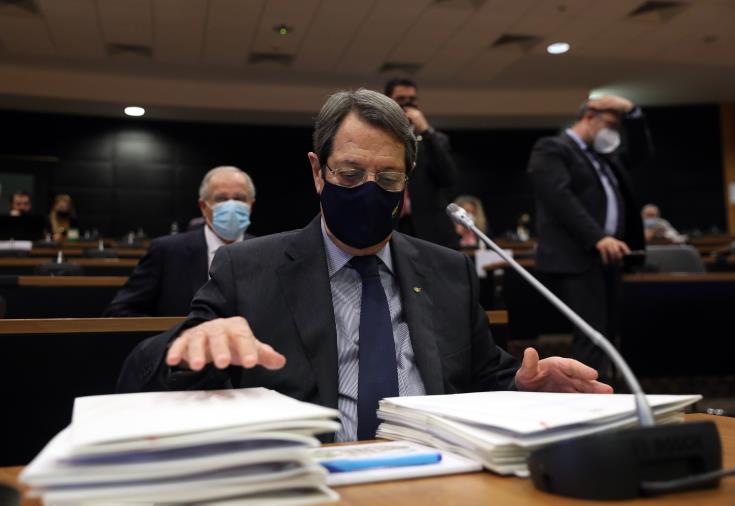It shouldn’t come as a shock to anyone that the President’s approval ratings have slid down the popularity ladder faster than a snake sheds its skin.
Asking Cypriots what they think about the President is a tad unfair when people are sick of COVID-19 lockdown measures, restricting their movement and freedom.
The economy has taken a pounding over the past year, with the future looking decidedly uncertain as jobs and salaries are under threat.
Authorities are trying to paint a brighter picture with optimism surrounding the vaccine rollout and a campaign to open up the island to tourists this summer after nobody came last year.
Europe has botched the vaccine distribution across the 27-member bloc while getting embroiled in contractual disputes with Big Pharma and threatening AstraZeneca exports to the UK.
As Cyprus has bought into the centralised supply chain, it has had to wait its turn, although shown no initiative to purchase vaccines outside the EU system.
Even though the government can rightfully argue it has a better track record than most other countries in tackling coronavirus, it will not win any popularity contest.
By definition, taking tough decisions means facing criticism and discontent from a society fatigued by draconian social distancing and mask-wearing.
Saying the measures are for our own good does not make them easier to digest.
The government has tried to keep the economy afloat by borrowing big and propping up businesses that had to shut, but the money will run out.
At some point in the not-too-distant future, we will be asked (obliged) to help pay the government’s burgeoning debt.
Nobody mentions the coronavirus bill, but there will be a knock at the door with a tax demand to settle the account.
If he’s shrewd, Anastasiades will leave the widening deficit for someone else to worry about.
Another huge punt is being placed on the island’s summer tourism show getting back on the road.
Cyprus is telling the world it’s open for cocktails at sunset with all-comers welcome, no quarantine, no fuss, no questions asked.
While the island wants to open its doors, more potent coronavirus variants push cases upward, bringing travel lockdown back into play.
People are desperate for a holiday, but the virus is in no mood to let that happen.
British tourists are more than welcome on these shores, but the UK government might not sanction holidays abroad this year.
It has mastered a successful vaccine rollout while the rest of Europe lagged, meaning the UK is vulnerable to variants brought back into the country.
In other parts of Europe, there is a COVID-19 third wave playing havoc with normality as Germany, France and Italy close the drawbridge.
Apart from Brussels dropping the ball over vaccine distribution, it has also dallied in trying to muster a coherent policy about holiday travel.
Impatient, Nicosia took unilateral action of inviting countries and signing deals to allow vaccinated visitors to come.
Europe is trying to devise a digital travel certificate, but the uneven rollout of vaccinations across the bloc dampen its effectiveness.
So, right now, there is no way of knowing where it would be safe to travel in three months, and once we get there, would we be able to come back.
Feel-good factor
Moreover, Cyprus hasn’t got a handle on its COVID-19 outlook with a case rate among the worst in Europe, although deaths are relatively low.
With the odds stacked against him, Anastasiades is unlikely to usher a feel-good factor if the pandemic lingers.
If battling a virus wasn’t bad enough, Anastasiades has also been undone by the smear of corruption and sleaze at the heart of public life.
Selling Cyprus passports for cash to criminals was not a good look for a country made into laughingstock as a gangsters paradise.
The ‘golden passports’ money trail also made its way to the President’s door.
He refuted rumours about his family law office making millions from the scheme, but when the EU criticised the investment programme, Anastasiades dismissed it as “jealousy”.
Nicosia ignored the calls to make its citizenship programme more transparent until finally politicians were caught with their hands in the honey pot trading favours for cash to undercover reporters.
And while corruption allegations have tainted the President, he has made no progress on resolving the island’s division.
That is nothing new, but arguably, the divide has widened, and mistrust hardened into a deep freeze on his watch.
Although Turkey may be primarily to blame, he was happy to go down the road of destination unknown.
Like his predecessors, there is no confidence that Anastasiades can deliver a peace deal or has the tools to do so.










